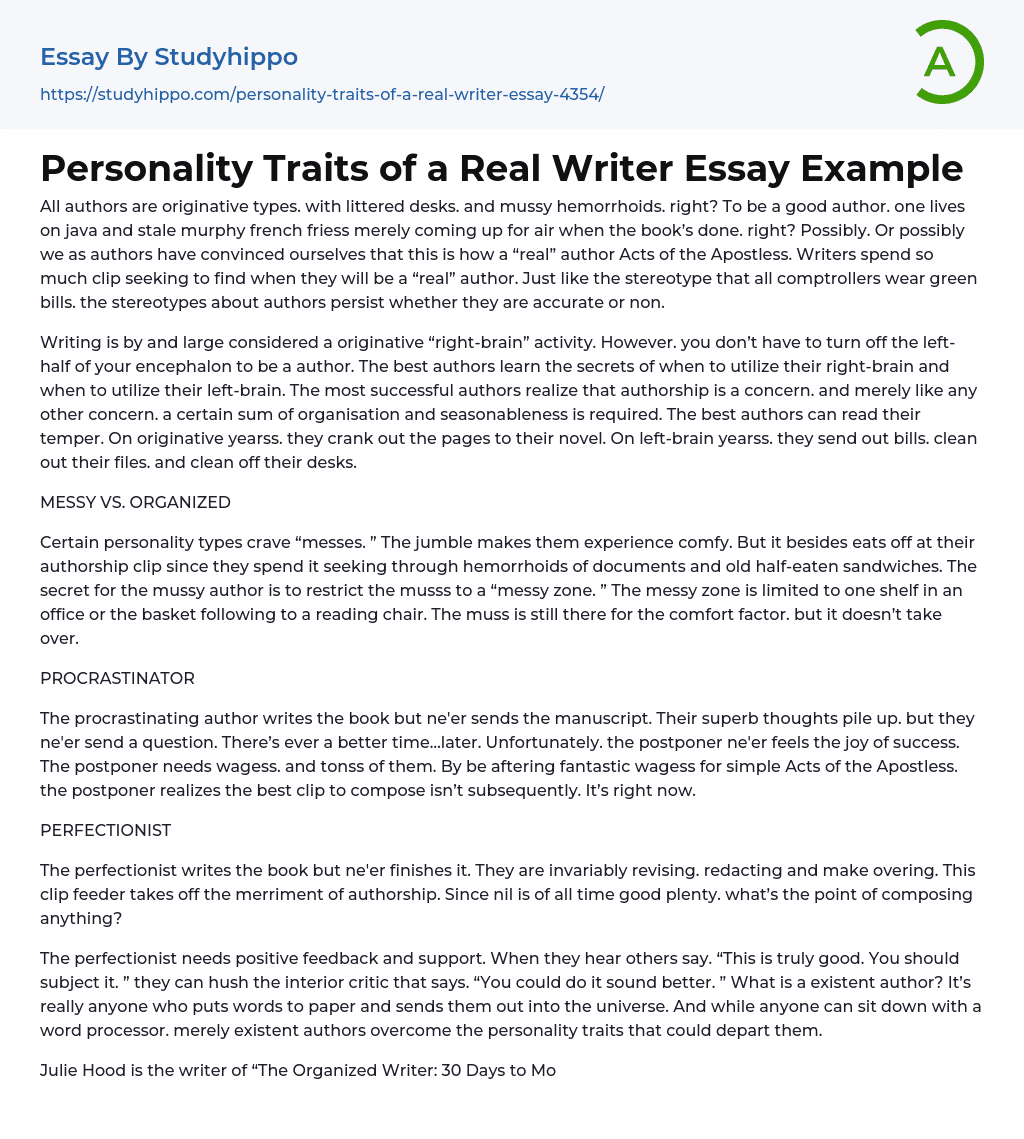All authors are creative individuals.
Having cluttered desks and messy hemorrhoids is often associated with being a good author. This means constantly consuming java and stale Murphy French friess, only taking breaks to catch a breath once the book is completed.
Perhaps we have convinced ourselves that behaving like a "real" author is the right thing to do. We often find ourselves pondering when we will become a "real" author. Just like the common belief that all accountants wear green suits, stereotypes about authors persist regardless of their accuracy. Writing is commonly regarded as a creative activity associated with the right side of the brain.
However. you don’t have to turn off the left-half of your encephalon to be a author. The best authors learn the secrets of when to utilize their right-brain and when to utilize their left-brain. The
...most successful authors realize that authorship is a concern. and merely like any other concern. a certain sum of organisation and seasonableness is required.
However, becoming an author does not require shutting off the left-half of your brain. The most skilled authors understand how to tap into the strengths of both their right-brain and left-brain. Successful authors acknowledge that writing is a business, just like any other, and it necessitates organization and timeliness.
The most skilled authors can detect their mood. On days when their creativity is flowing, they produce pages for their novel. On days when they are more analytical, they handle administrative tasks such as sending out invoices and organizing their files.
Clean off their desks and tidy up their workspaces.
MESSY VS. ORGANIZED
Some individuals desire
disorder as it makes them feel comfortable.
However, it also takes away from their productivity as they waste time sifting through piles of papers and old sandwiches. The solution for disorganized writers is to confine the mess to a specific area known as the "messy zone." This area can be a single shelf in an office or a basket next to a reading chair. The mess is allowed to exist in this designated space for the sake of comfort.
but it doesn’t take over.
PROCRASTINATOR
The procrastinating author writes the book but never sends the manuscript. Their superb thoughts pile up but they never send a question. There’s always a better time…later. Unfortunately.
The individual who constantly delays never experiences the satisfaction of achieving success. This person desires rewards, and many of them. They accomplish this by setting up enticing rewards for even the most basic tasks.
The postponer and the perfectionist both struggle with the timing and completion of their tasks.
PERFECTIONIST
The perfectionist, always revising, writes a book but never finishes it.
Redacting and changing. This clip feeder removes the joy of writing. Because nothing is ever good enough, what is the purpose of writing anything? The perfectionist requires encouragement and support.
When others compliment something as being truly good and suggest subjecting it, it can silence the internal critic that says.
"You could improve the quality of your writing. " What is an authentic writer? It's simply someone who writes and shares their work with the world. Although anyone can use a word processor, genuine writers overcome personal qualities that may hinder them.
Julie Hood,
the writer of "The Organized Writer: 30 Days to More Time, More Money and Less Frustration," is the creator of a new ebook that provides a roadmap for integrating a writing career with the rest of one's life. She is in charge of the OrganizedWriter.
Writer-Reminders is a weekly newsletter for authors that is published on the com website. Subscribers of the newsletter are given a complimentary ebook called The Sidetracked Writer's Planner.
When she's not composing, she manages to clean the house amidst a busy family with two kids, her husband, and two avid golf players.




